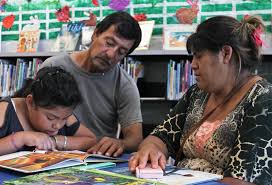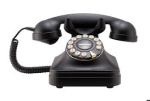 Sensitivity readers used in the publishing of multicultural books have been in the social media conversation recently. A sensitivity reader, sometimes called a cultural consultant, reads a manuscript from a standpoint of membership in a racial, ethnic, linguistic, or spiritual community and evaluates the story for authenticity and makes revision recommendations.
Sensitivity readers used in the publishing of multicultural books have been in the social media conversation recently. A sensitivity reader, sometimes called a cultural consultant, reads a manuscript from a standpoint of membership in a racial, ethnic, linguistic, or spiritual community and evaluates the story for authenticity and makes revision recommendations. elp me understand the culture of military families and maritime professions. And I have used cultural consultants to help me more fully understand characters who share my own ethnicity and religion. Membership in the race, ethnicity, or religion of your characters doesn’t automatically
elp me understand the culture of military families and maritime professions. And I have used cultural consultants to help me more fully understand characters who share my own ethnicity and religion. Membership in the race, ethnicity, or religion of your characters doesn’t automaticallymake you an authority on your characters particular situation. There are a multitude of life experiences and ways to live within every racial or ethnic group. Don’t short change yourself in the research just because you are writing from a home culture.
- Gain access to research materials
 field guide but seeing and hearing and smelling the trees made all the difference. I’ve made valuable personal connections through research consultants and I’ve gained access to unpublished research and off-display museum materials which did much to round out my understanding of a culture. And because I used a consultant early in the process, I could efficiently make the necessary changes.
field guide but seeing and hearing and smelling the trees made all the difference. I’ve made valuable personal connections through research consultants and I’ve gained access to unpublished research and off-display museum materials which did much to round out my understanding of a culture. And because I used a consultant early in the process, I could efficiently make the necessary changes.- Embrace the need for substantial change in your story
 dly disparate information. Suggested contacts don’t return your queries. And sometimes a sensitivity reader will recommend explicitly that you leave an entire topic alone.
dly disparate information. Suggested contacts don’t return your queries. And sometimes a sensitivity reader will recommend explicitly that you leave an entire topic alone.- Open your heart to a change in your world view.
 The joy and challenge of writing fiction is the opportunity to submerge yourself in another person’s experience. If you enter into that work wholeheartedly it can change you. If you have the assistance of a good consultant it can change you for the better. I had a real gem of a consultant for The Turn of The Tide. She is a Japanese language teacher and initially I just asked her to check the Japanese words to make sure I was using them correctly. But we ended up having a much longer conversation because my main character is biracial & she is raising biracial children. And she is from an area devastated by the 2011 earthquake and tsunami. She had much to say about the contemporary experience of Japanese American students and the impact of the tsunami not just on the land but upon the broader Japanese culture. I was truly touched by her words and have thought differently about Japanese culture and many global issues, particularly the impact of rising oceans on indigenous peoples in the Pacific, ever since. As for the story, I went back to the beginning with my biracial character and reexamined every bit of internal and external dialogue to make it more reflective of what I’d learned about the grief particular to a tsunami survivor. I didn’t need to change any major plot points but I did uncover the soul of the character in a way I hadn’t before.
The joy and challenge of writing fiction is the opportunity to submerge yourself in another person’s experience. If you enter into that work wholeheartedly it can change you. If you have the assistance of a good consultant it can change you for the better. I had a real gem of a consultant for The Turn of The Tide. She is a Japanese language teacher and initially I just asked her to check the Japanese words to make sure I was using them correctly. But we ended up having a much longer conversation because my main character is biracial & she is raising biracial children. And she is from an area devastated by the 2011 earthquake and tsunami. She had much to say about the contemporary experience of Japanese American students and the impact of the tsunami not just on the land but upon the broader Japanese culture. I was truly touched by her words and have thought differently about Japanese culture and many global issues, particularly the impact of rising oceans on indigenous peoples in the Pacific, ever since. As for the story, I went back to the beginning with my biracial character and reexamined every bit of internal and external dialogue to make it more reflective of what I’d learned about the grief particular to a tsunami survivor. I didn’t need to change any major plot points but I did uncover the soul of the character in a way I hadn’t before.
 book
book 



